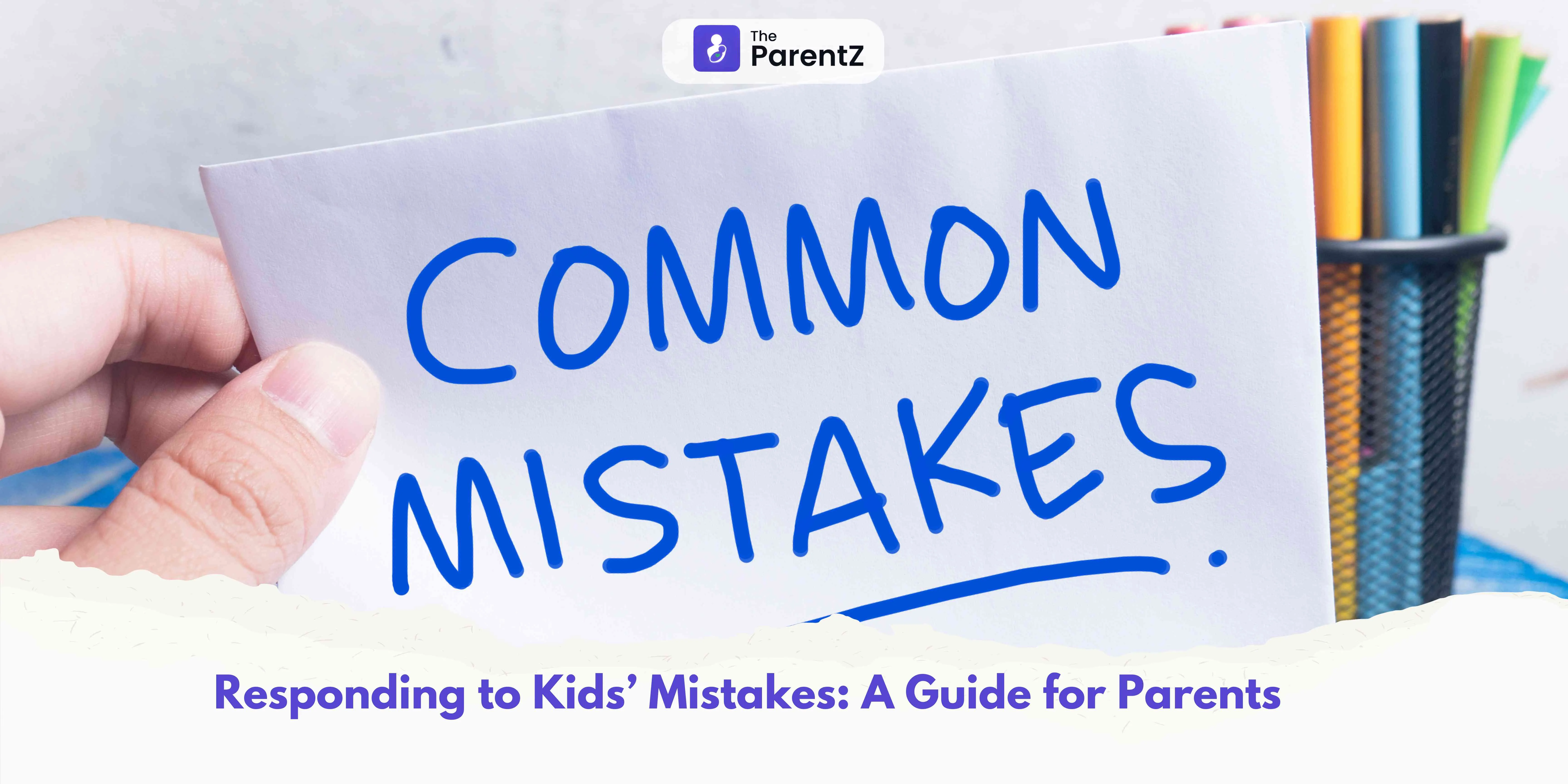Mistakes are an inevitable part of growing up, and how parents respond to their children's errors can significantly impact their development. The way we handle these moments can either foster resilience and learning or create fear and anxiety. This article delves into the best practices for responding to kids’ mistakes, focusing on strategies that promote healthy growth, emotional well-being, and a lifelong love for learning.
Why Responding to Mistakes Matters
Children are constantly learning and exploring their environment. Mistakes are a natural part of this process and offer valuable opportunities for growth. When parents respond to these mistakes with understanding and guidance, they help their children develop critical life skills such as problem-solving, perseverance, and self-compassion.
The Impact of Negative Responses
Before exploring effective strategies, it’s essential to understand the potential harm of negative reactions to mistakes. Responses such as anger, punishment, or ridicule can have long-lasting effects on a child’s self-esteem and willingness to take risks.
Case Study: Consider Rahul, a 10-year-old who accidentally broke a glass while trying to help his mother set the table. His father, in a moment of frustration, scolded him harshly and sent him to his room. As a result, Rahul became more hesitant to help around the house and began avoiding tasks that could lead to mistakes, fearing further criticism.
This type of response can create a fear of failure, making children less likely to try new things or take on challenges. It can also damage the parent-child relationship, leading to feelings of resentment and a lack of trust.
Positive Approaches to Responding to Mistakes
- Stay Calm and Composed
The first step in responding to a child’s mistake is to remain calm. Children look to their parents for cues on how to react in various situations. By staying composed, you model the behavior you want your child to emulate.
Example: If your child spills milk while pouring it into a glass, take a deep breath before reacting. Instead of expressing frustration, say, “It’s okay, everyone makes mistakes. Let’s clean it up together.”
- Acknowledge the Effort
When children make mistakes, it’s essential to acknowledge their effort, even if the outcome wasn’t as expected. This approach encourages a growth mindset, where children learn to value effort and persistence over perfection.
Example: If your child struggles with a math problem and gets the answer wrong, recognize their hard work by saying, “I see you’re really trying to solve this problem. Let’s work on it together and figure out where it went wrong.”
- Focus on the Solution, Not the Problem
Instead of dwelling on the mistake, guide your child toward finding a solution. This teaches them problem-solving skills and helps them understand that mistakes are opportunities to learn.
Example: If your child accidentally tears a page in their book, instead of reprimanding them, ask, “How do you think we can fix this?” You can then show them how to tape the page back together, turning the mistake into a learning experience.
- Encourage Reflection
Encourage your child to reflect on their mistake and think about what they could do differently next time. This promotes self-awareness and helps them take ownership of their actions.
Example: After your child forgets their homework at home, ask, “What do you think you could do tomorrow to remember your homework?” This might lead to ideas like setting a reminder or packing their bag the night before.
- Provide Support and Reassurance
Let your child know that mistakes are a normal part of life and that you’re there to support them. Reassurance from a parent can boost a child’s confidence and help them overcome feelings of guilt or embarrassment.
Example: If your child loses a game and feels upset, reassure them by saying, “It’s okay to lose sometimes. What matters is that you tried your best and had fun. We can practice together if you want to improve.”
- Avoid Over-Protection
While it’s natural to want to protect your child from failure, it’s essential to let them experience and learn from their mistakes. Shielding them too much can hinder their ability to develop resilience and problem-solving skills.
Example: Instead of stepping in immediately when your child struggles with a task, allow them to try different approaches on their own. Offer guidance only when necessary, and celebrate their success when they figure it out.
The Long-Term Benefits of Positive Responses
By responding to mistakes with empathy and guidance, you help your child develop several critical skills:
- Resilience: Children learn to bounce back from setbacks and view challenges as opportunities for growth.
- Self-Esteem: Positive responses reinforce the idea that their worth is not tied to perfection but to effort and learning.
- Problem-Solving Skills: Children become more capable of finding solutions and making decisions independently.
- Healthy Risk-Taking: Encouraging a positive attitude toward mistakes fosters a willingness to try new things and take on challenges.
Conclusion
Responding to kids’ mistakes with empathy, understanding, and guidance is crucial for their development. It helps them build resilience, self-esteem, and problem-solving skills that will serve them throughout their lives. As parents, our goal should be to create an environment where mistakes are seen as a natural and valuable part of learning.
By adopting positive approaches to responding to mistakes, we can help our children grow into confident, capable, and compassionate individuals who are not afraid to take on the world and learn from their experiences.








Be the first one to comment on this story.